Show me the money trust: the most valuable transaction in any business
The necessity of trust between a business and its clients seems so obvious and straightforward as to almost not require further discussion. I mean, it’s a given, right? Without trust nothing can flourish. Everything will fall apart.
But when we start really thinking about what we mean by trust and how we identify and nurture it, well, it gets a bit more complicated. It can take on all kinds of forms depending on what one’s agenda or motivations are. The idea of trust and what it entails can get a bit slippery. What do we really mean by describing someone as trustworthy? What is expected from a trusted relationship? If businesses and their clients are not on the same page about that stuff, well, incorrect assumptions can be made, lines can get crossed, communication can flounder and it can all get a bit ugly.
Enter the Trust Equation as developed by David Maister, Robert Galford and Charles Green in their 2000 book, The Trusted Advisor. The Trust Equation is a model for measuring trustworthiness. It looks like this:
Trustworthiness = Credibility + Reliability + Intimacy
Self Orientation
In terms of a business and client relationship, it breaks down like this:
Credibility – this is to do with whether the business/consultant knows what they are talking about. Is their client confident they have the relevant experience and qualifications to be considered credible? Are they an expert on the subject? For example, we trust that a doctor is credible on the subject of, say, flu vaccinations because they’ve spent years at university learning about such things and continue to stay on top of the current research. Are they credible on the subject of investing in mid-century Australian art? A bit harder to say.
Reliability – is there anything more immediately and irritatingly undermining to trust than someone always running late or stretching an agreed deadline or not showing up to a meeting? Dependability and consistency are key to the development of trust.
Intimacy – this is about trusting someone to be discreet with the information you give them, to take seriously the promise of confidentiality, to hold all the aspects of your relationship with respect – whether that be a new draft of a sensitive contract or knowledge of, say, a personal illness or a family crisis.
Self-orientation – does the business have the client’s interests at heart or is it really all about them? If a client senses that that their consultant isn’t focussed on them, trust will start to deteriorate. Self-interest very quickly manifests as a lack of attention and care about the client’s needs.
Ideally then, you want high credibility, reliability and intimacy, and low self-orientation.
The thing that really appeals to me about this model is that it takes something that seems inexact, something we often associate with nebulous intuitions and gives it a measurable solidity. Think about someone you really trust – maybe it’s your broker, maybe it’s your dentist, maybe it’s the principal at your kid’s school. Apply the model to them and see if you can turn what seems like an instinctive gut feeling into something more concrete.
The other thing I dig about this model is that if you’re someone who is naturally inclined to trust people, it serves to give you a way to temper that optimistic tendency. Conversely, if you’re someone who leans toward excessive caution, the model gives you a way to move forward out of what can sometimes turn in to a paralysing suspicion.
There are so many ways to build trust with a client, but my top five trust-building pointers, outlined in our sales training, take their lead directly from the trust equation:
Know what you’re talking about (credibility). And when you don’t – own it. Nothing comes back to bite you faster and harder than something you’ve pulled out of thin air because you’ve haven’t had the guts or sense to say “I don’t know the answer to that. I’ll find out.”
Do what you say you’ll do (reliability). – (DWYSYD). Keep your commitments. Under promise and over deliver. If you make a an appointment for 10am be there at 10am. If you say your product will deliver x times growth make sure it delivers x + 1.
Be cool (intimacy). Chances are, along your journey with your client, you’re going to get to know them in all kinds of ways – some of which are about business and a lot that aren’t. Hold back on judgement, and don’t whine about them behind their back – even if they really drive you nuts. Letting off steam occasionally is one thing. But make a habit of undermining them in private and that irritation and disrespect will eventually seep into your dealings with them. And they’ll feel it.
Become customer-centric (Self Orientation) – approach each interaction with your clients with the intent to make their lives better. It doesn’t mean you are being a push over. It doesn’t mean you can’t negotiate for better terms. But we should be looking for the win/win in every situation.
Think of yourself as a bit Bill Gates when it comes to trust? Why not take the test and see whether you’re all that.





